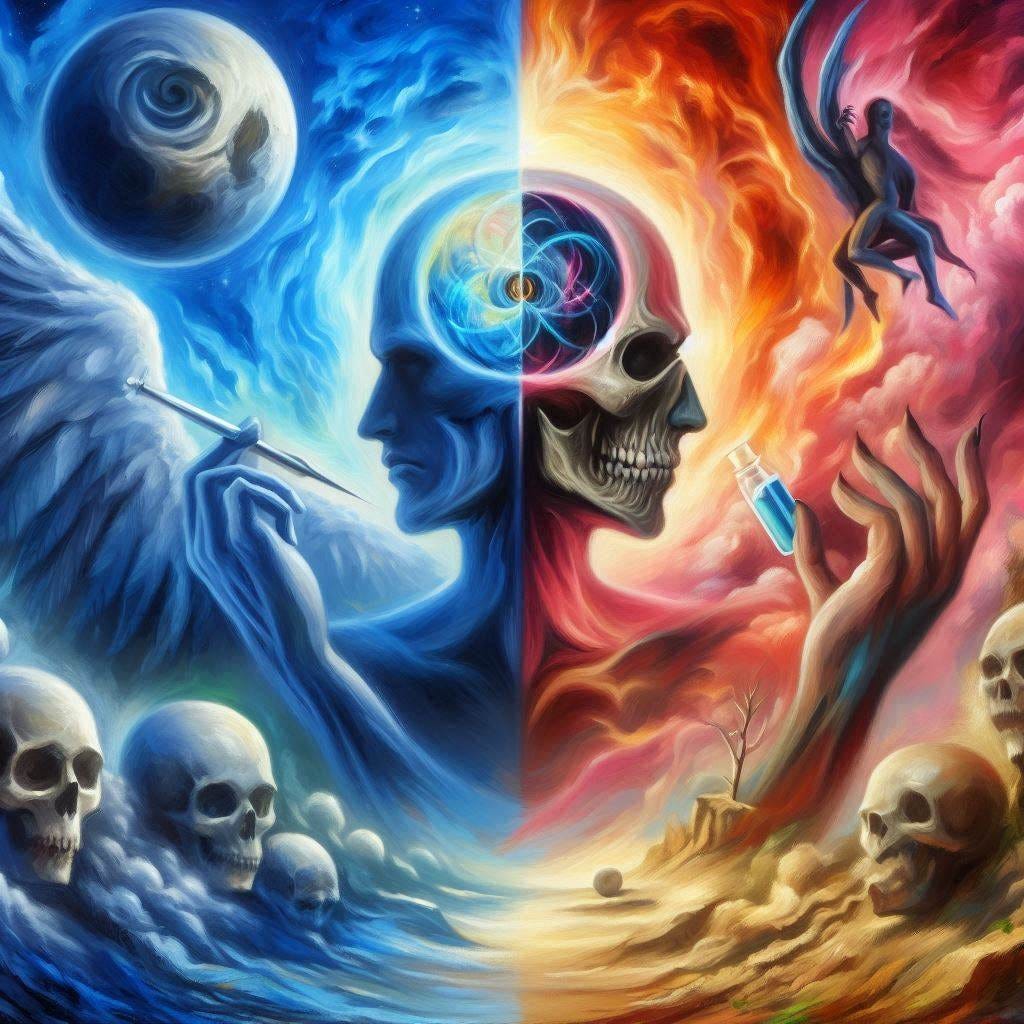Evil and Sickness
The difference and the overlap
The concepts of evil and sickness are distinct yet intertwined in complex ways, particularly when viewed through moral and philosophical lenses.
**Evil** is often understood as a deliberate act or intention that causes harm, suffering, or injustice. It is typically associated with moral agency—actions taken by individuals who are aware of their choices and the consequences. Evil is a moral judgment, implying accountability and the capacity to choose between right and wrong.
**Sickness**, on the other hand, refers to a physical or mental condition that impairs health or well-being. It is generally seen as involuntary, arising from biological or environmental factors rather than moral choices. Sickness does not carry the same moral weight as evil because it is not a product of intent.
The moral overlap between the two arises in scenarios where sickness influences behavior. For example, certain mental illnesses might lead individuals to act in ways that are harmful or destructive, raising questions about moral responsibility. Are such actions evil if they stem from a condition beyond the individual's control? This overlap challenges the binary distinction between evil and sickness, suggesting a spectrum where intent, awareness, and circumstances play crucial roles.
Philosophical and theological perspectives often explore this interplay. Some traditions view sickness as a consequence of moral failings or sin, blurring the lines between physical ailment and moral judgment](https://bibleresources.info/what-is-the-relationship-between-sin-and-sickness-matthew-9/). Others emphasize compassion and understanding, recognizing that sickness can diminish an individual's capacity for moral agency.



